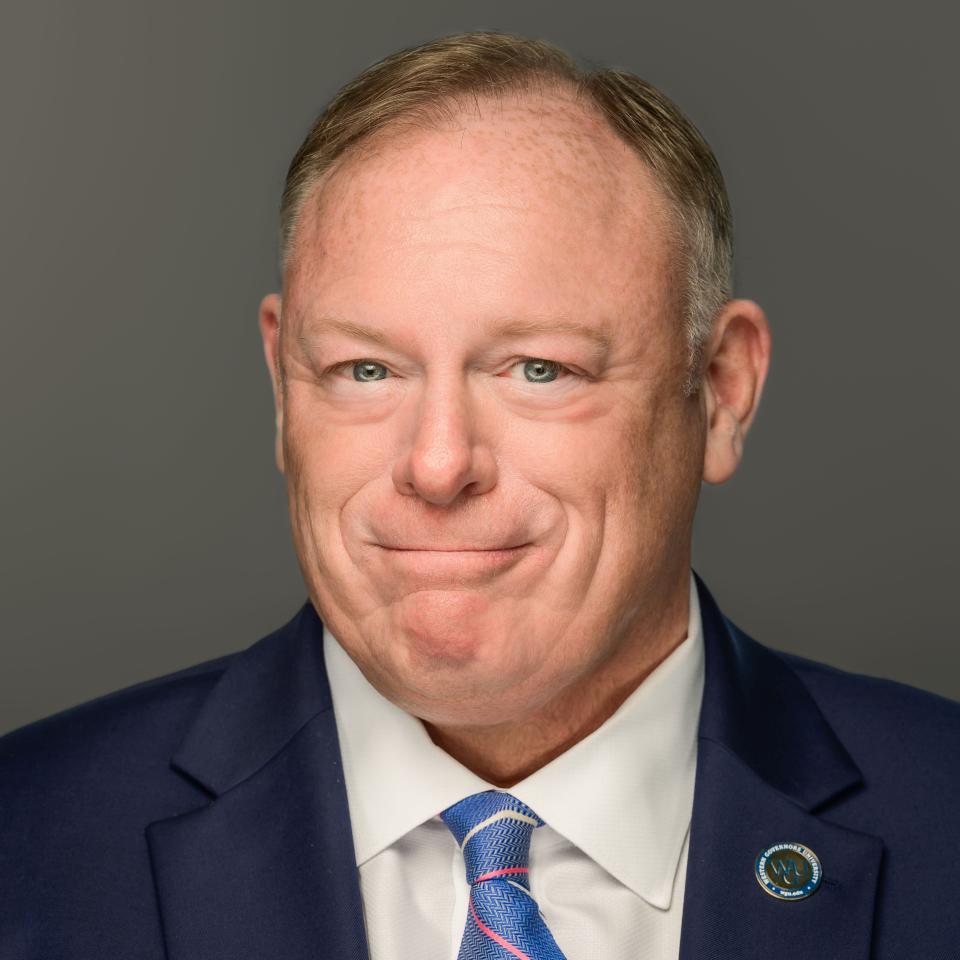Opinion: Military and schools need to help ease veterans' transition to civilian life
While most Americans recognize Nov. 11 as Veterans Day, few know that November is National Veterans and Military Families Month. Every November, the Defense Department and military community celebrate military families and veterans transitioning out of the armed forces.
Every year, an estimated 250,000 men and women leave or retire from U.S. military service and return to civilian life. North Carolina currently has 720,000 veterans in the state.
According to a 2019 report from the Pew Research Center, 30% of veterans stated the military did not prepare them well for the transition to civilian life, and 15% said the military did not prepare them at all. While many join the workforce after their service, a significant number go back to school. An estimated 800,000 veterans have used what’s known as the Post 9/11 GI Bill since it was implemented in 2009.
Returning to school isn’t necessarily easy for veterans. A study titled “An Emerging Population: Student Veterans in Higher Education in the 21st Century” by Professor Mary E. Falkey of Prince George’s Community College in Maryland revealed that veterans in college have interaction patterns that are much different than they had in the military. Those at community colleges reported high levels of interaction with faculty and virtually no interaction with other students/veterans. Veterans at four-year institutions reported low levels of interaction with faculty, high levels of interaction with other students/veterans, and minimal interaction with nonveteran students.
Our military and schools can do more to ease veterans transition into higher education and make their experiences more conducive to social and academic success. Following are five recommendations.
Promote career options to service members
While they are still in the military, service members can benefit from learning about popular careers for veterans. While veterans qualify for a wide range of roles, certain post-military careers are a natural fit for them based on their responsibilities. Popular post-military careers include defense/national security contracting, intelligence, emergency management and public safety, cybersecurity and information technology, and law enforcement. Depending on their training and roles, veterans also enter such fields as health care, logistics and education.
Better utilize existing resources
The U.S. Department of Education provides funding to colleges and nonprofit organizations to assist veterans in enrolling in and completing programs of postsecondary education. For example, the Veterans Upward Bound program provides grants to support services such as assessment and enhancement of basic skills and college readiness through counseling, mentoring, tutoring and academic instruction in core subjects. Educational Opportunity Centers provide counseling and information on college admissions to qualified adults who want to enter or continue a program of postsecondary education. North Carolina has numerous Upward Bound grantees and Educational Opportunity Centers in the state.
Optimize usage of the GI Bill
The GI Bill not only pays for tuition but can also provide funding for fees, housing, school supplies and more, depending on the veteran's situation. Unfortunately, estimates suggest that only 40% of eligible veterans use the program, which helped pay for my master’s degree and doctorate.
Hire veterans and implement support resources
Military veterans connect with and relate to other veterans. Colleges and universities should hire veterans as faculty, counselors, advisors and administrators. Institutions with appropriate resources should create programs that specifically address the needs of student veterans. One example is the Military and Veteran Services (MVS) program at NC State University.
Provide more education pathways
Just like everyone else, veterans have individual preferences and modes of learning. Some function better in classrooms while others excel in asynchronous online settings that let them study when and where it’s appropriate for them. Many veterans would also benefit from competency-based education, which awards college credit for mastery of content and skills rather than for time spent in a class. Thus, they could earn college credit for knowledge and skills they already possess. As a testament to the popularity of that approach, about 23% of North Carolina-based students at online, nonprofit Western Governors University are affiliated with the military community.
Through providing early exposure to career options, connecting them with preparatory and financial resources, implementing peer programs, and giving them options for how to take classes, we can better meet the needs of veterans in post-secondary institutions.
Editor: The Asheville Citizen Times welcomes women's voices and opinions
More: Opinion: More colleges should provide student mentors: UNCA, WCU offer programs
More: Opinion: G.I. Bill likely has greatest impact on post-service careers, livelihoods for vet

Ben Coulter, Ed.D., is southeast regional director for WGU and leads WGU North Carolina, based in Durham. He is a retired U.S. Army counterintelligence officer.
This article originally appeared on Asheville Citizen Times: Military veterans need more help transitioning into civilian life


